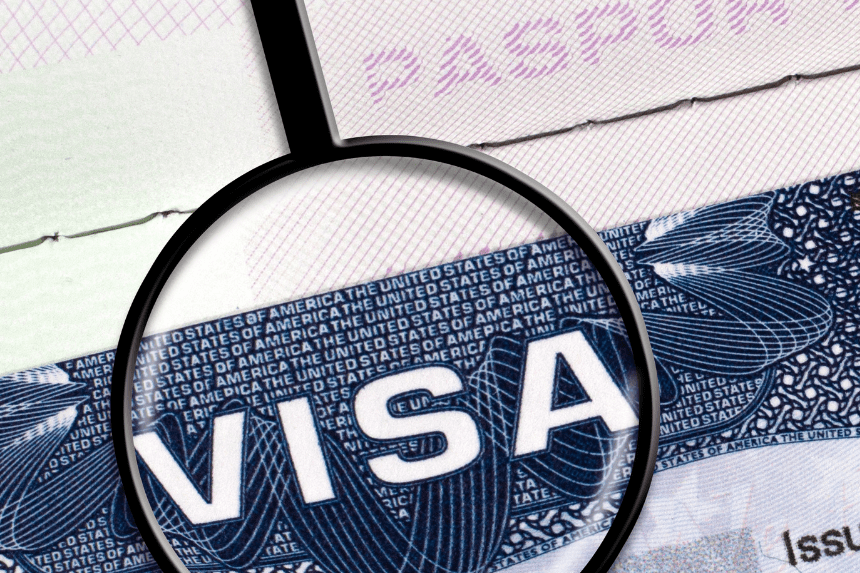The United States has implemented a stricter Chinese student visa policy in a major policy change, which is already altering the landscape of international education. Driven by national security issues and growing tensions with China, the new regulations seek to limit the entrance and stay of students with suspected ties to the Chinese Communist Party or those pursuing degrees in sensitive domains, including artificial intelligence, quantum computing, and aerospace.
With about 280,000 Chinese students enrolled in US colleges right now, the new method marks a significant change in US immigration and educational policy. For legislators, colleges, and students, the developments raise serious concerns about the direction of world education and international cooperation.
What set off the modification in the Chinese student Visa policy?
Growing US government concerns about intellectual property theft, espionage, and geopolitical competitiveness drive the policy modification. Secretary of State Marco Rubio claims that the new Chinese student visa policy is a component of larger national security counter-strategies.
Students have “connections to the Chinese Communist Party or studying in critical fields,” Rubio said, would be subject to forceful visa denials. Apart from focusing on present students, the US government is redesigning the visa application process to incorporate improved social media screening and background checks for every prospective candidate from China and Hong Kong.
These developments occur against declining diplomatic ties between the two world powers. A trade war, conflicting technology innovations, and ideological divisions have all added to the current hostility. Read another article on the US-China Trade War Impact
How Affected Are Chinese Students?
Among international students, the new approach has already generated great uncertainty. Many fear losing their legal status, being forced to leave the nation, or having future applications turned down. The psychological cost is great.
“I already regret my decision to study in the US,” said a 22-year-old Shanghai graduate student enrolled in the University of Pennsylvania. Every day, I am unsure about whether I will be allowed to complete my degree.
Students are skipping events, postponing trips abroad, and occasionally looking at transfer prospects to nations with more consistent visa policies. Those enrolled in advanced academic or research programs, especially in STEM disciplines, specifically feel exposed.
Operations of embassies have also suffered. While permitting booked appointments to go forward, a leaked document directed US embassies all around to eliminate all available appointments for student visa interviews. The aim is to get ready for the introduction of fresh screening policies.
What Views Do US Colleges Have?
Among the most active detractors of the revised Chinese student visa program are American institutions and universities. For both research contributions and tuition income, many universities mostly depend on overseas students. Particularly in science and engineering, Chinese students, who typically pay full tuition, are essential for the financial viability of many schools.
Following the attempts to remove its certification allowing foreign students, Harvard University has launched a legal fight. Temporary blocking of the relocation by a federal judge stating the “irreparable harm” it would cause to the university and students
In a court document, Harvard’s Director of the International Office, Maureen Martin, noted: “This policy change is already causing major emotional suffering for our students. While others worry about returning to politically dangerous or insecure surroundings, many are scared of deportation.
Other colleges have mirrored these worries. They contend that the developments could compromise the United States’ standing as a worldwide center of higher education and innovation. Read another article on US-China Trade Tensions
Is the policy change influencing diplomatic ties?
The Chinese government has openly advised the US to protect overseas student rights. “We urge the US side to earnestly protect the legitimate rights and interests of all international students, including those from China,” said a Chinese official responding to the visa policy change.
The comment, which was measured, shows a rising annoyance with what China sees as politically driven and discriminatory acts. Now, a flashpoint in an already tense bilateral relationship is the Chinese student visa policy.
Deeply ingrained in geopolitical rivalry, both nations today view matters once under intellectual and cultural interchange through a national security prism. The results might influence not just universities and students but also scientific advancement and research cooperation.
What Can Universities and Students Do Going Ahead?
Students should remain updated and closely connected with the foreign office of their university, considering the uncertainty. Often the first to get changes, these offices can offer direction on travel, visa renewals, and legal choices.
Universities and colleges also have to act. More important than ever are expanding legal resources, mental health assistance, and academic advice for international students. Institutions could have to use policy lobbying or legal challenges to speak on behalf of their students. The keys are flexibility and openness. Universities should let impacted students negotiate the complexity of the new Chinese student visa policy by means of open communication regarding evolving criteria.
Future Possibilities
International education’s future is in flux. Other nations, including Canada, Australia, and the UK, may see more demand from students looking for a more predictable academic experience if US immigration restrictions tighten.
American colleges are under pressure to adjust their methods. Maintaining the leadership of the nation in global education depends on carefully balancing national security with academic freedom.
The Chinese student visa policy captures more general patterns in world mobility and security. Managing these relationships with justice, integrity, and foresight is more critical than ever as the globe gets more linked.
Last Thought
US higher education and foreign relations undergo a sea change with the tightening of the Chinese student visa policy. It points to an increasing emphasis on national security at the expense of global interaction and educational openness.
Long-term consequences will rely on how the US negotiates this complicated junction of security, diplomacy, and academic cooperation as institutions and students change. Staying informed, proactive, and encouraging will be vital for all the engaged stakeholders for now.








